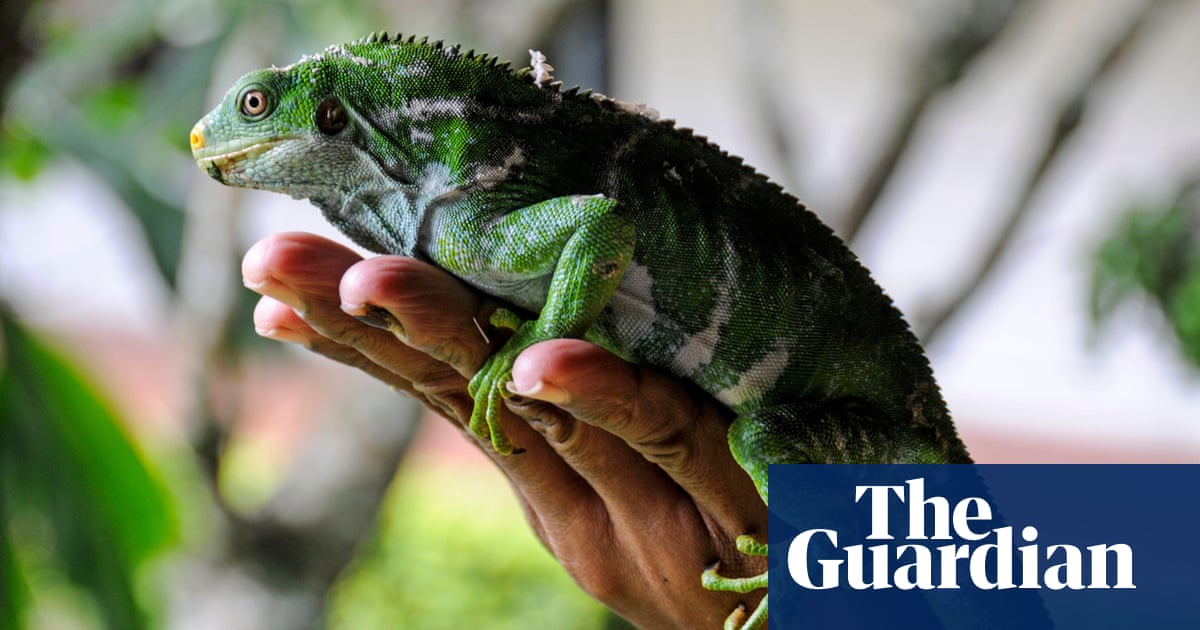
"The journey from North America to Fiji could have taken a few months, but these desert iguanas would have been ideal passengers because they were adept at resisting dehydration and could have snacked on the plants underfoot."
"Initially they thought Fiji might be a bit too far for such a trip, but in a new study, researchers inspected the genes of 14 iguana species spanning the Americas, the Caribbean and Fiji."
Research indicates that iguanas traveled from North America to Fiji on a raft of vegetation, covering approximately 5,000 miles, a record for land-dwelling vertebrates. Genetic analysis of 14 iguana species revealed that Fijian iguanas share a common ancestor with North American desert iguanas, suggesting they split off about 31 million years ago. This study not only confirms earlier hypotheses but shows how resilient iguanas are, making them suitable for long oceanic journeys, as they can resist dehydration and consume surrounding plant matter during their travels.
Read at www.theguardian.com
Unable to calculate read time
Collection
[
|
...
]